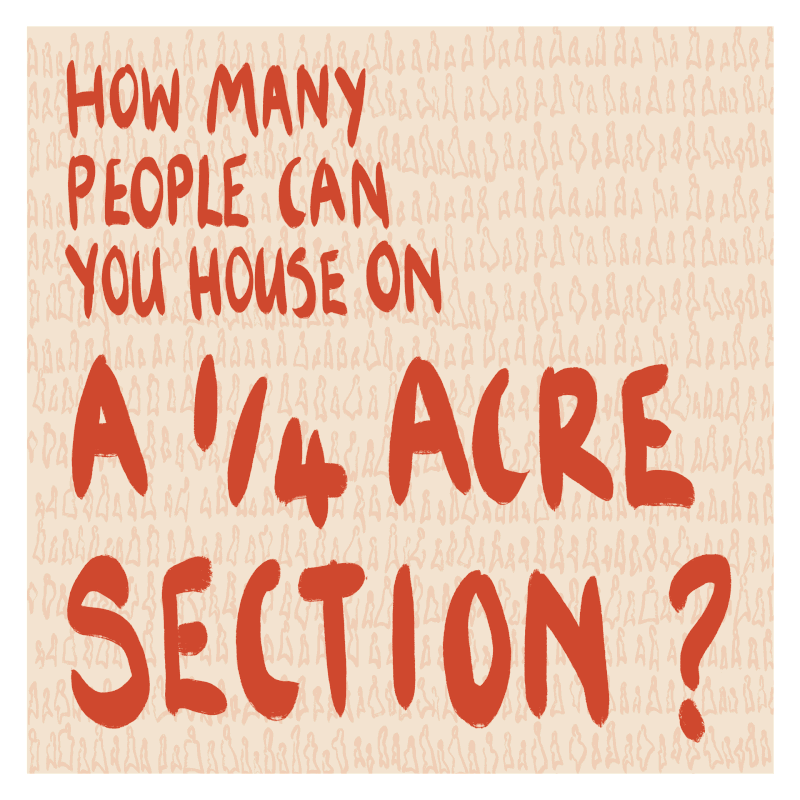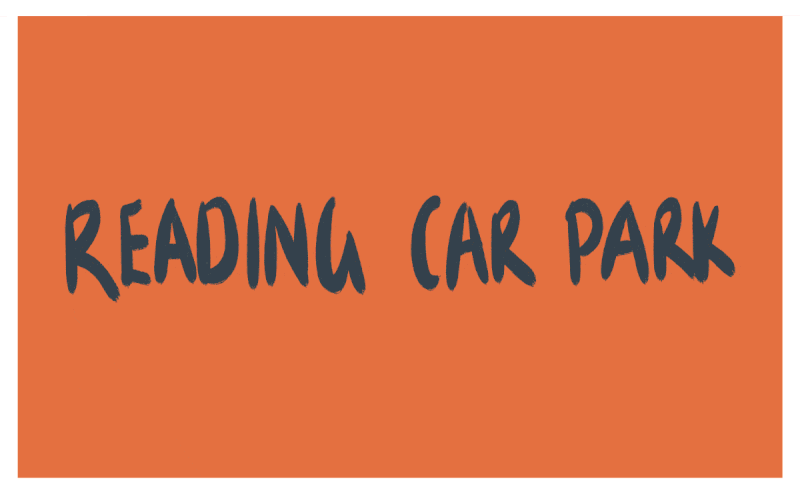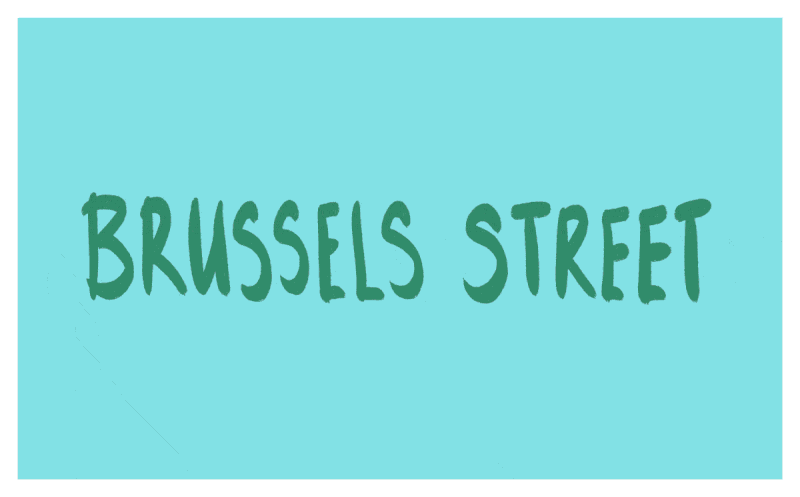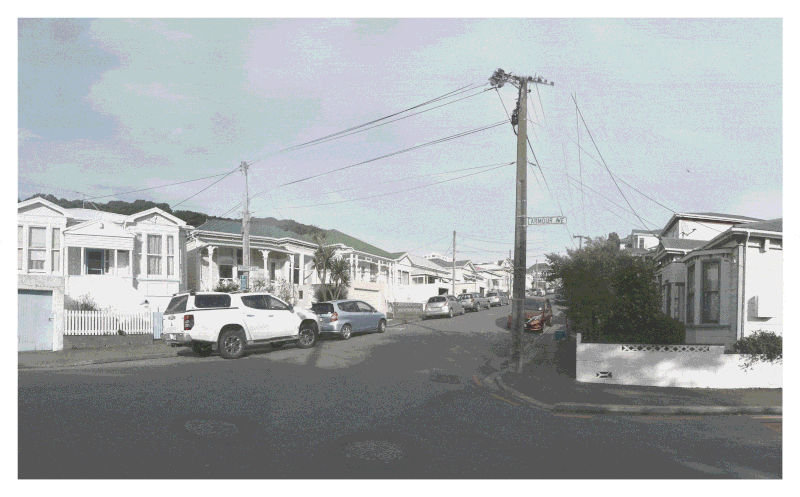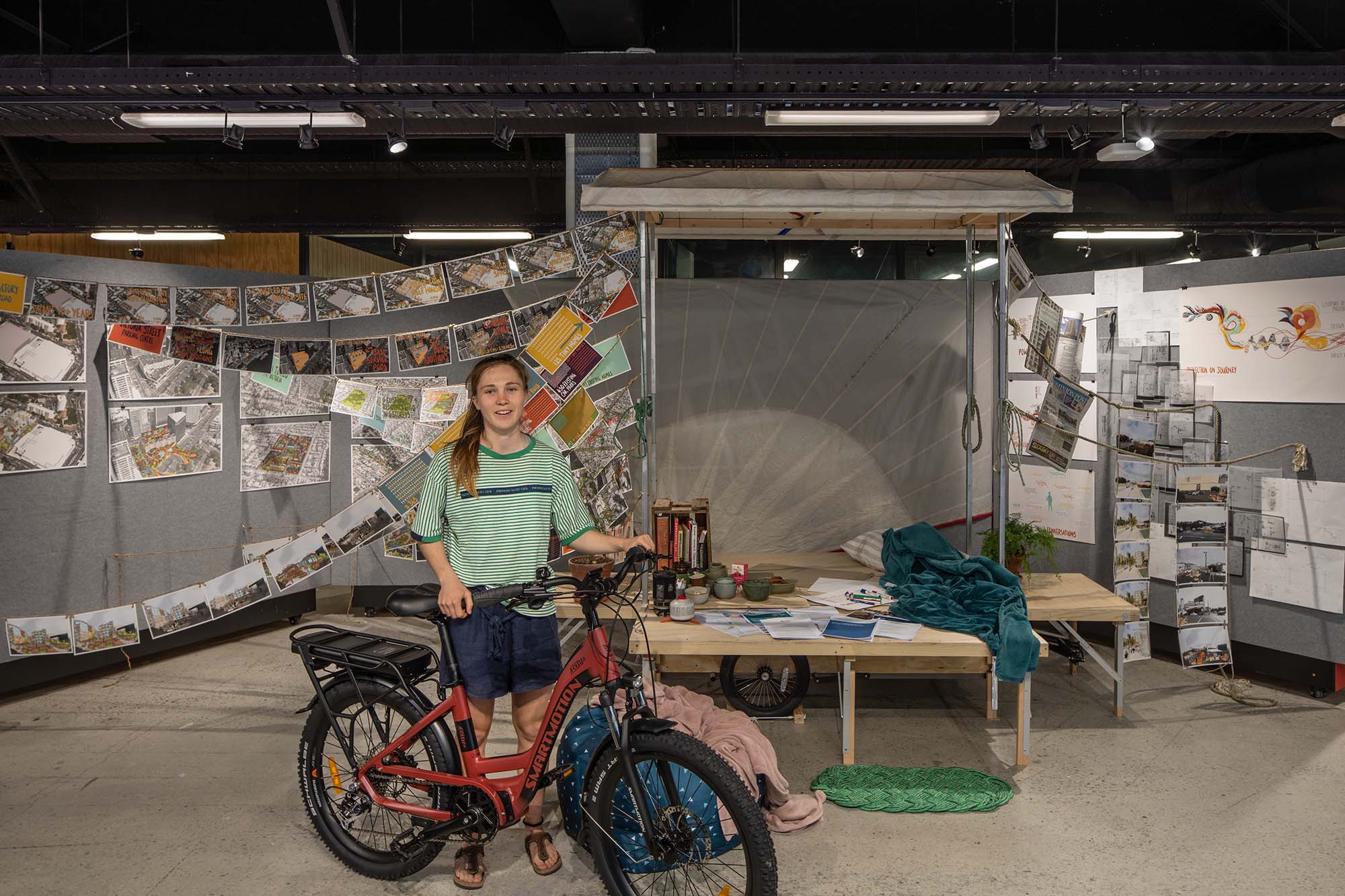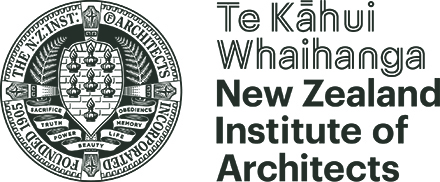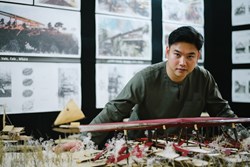Alice Reade of Te Herenga Waka Victoria University of Wellington School of Architecture is highly commended for her project 'Go Public: Architecture as Activism'.
Project description
Housing is a human right. There is an extreme housing shortage in Pōneke Wellington and question marks over how we use the space of the city. Architects design houses and have opinions about how to use space. We must then interrogate this urban relation; what is the architect's role in the building of Aotearoa’s civic-ness?
This project experiments with the re-emergence of conscious recognition and embrace of the political and activist nature of architectural practice. It finds an expanded practice, one based in personal craft that aligns with public meaning. Architectural image generation and self-build are bought together as techniques to, on the one hand, subvert individualised interests and the over-financialisation of Aotearoa’s housing dynamics, and, on the other, to foreground, or give voice to another way. These architectural techniques are means that give back to the community with tools to shape their future.
A series of GIFs engaging with Pōneke’s housing discourse and ideas of self-build act as provocations to discussion. Via image creation, they ask: what is given priority in urban space; what is the level of public-private acceptability; if we are going to respond with urgency to the housing shortage, what should we do? Resulting connections, discussions and reflections lead to the self-build of a bike trailer to provide a platform for these dialogues, the very foundation of urbanism, to occur. The spatially transforming and mobile nature of the cart enables these discussion to be taken up anywhere and with anyone.
Architects make contributions to housing and the building of stronger communities. We need to use our agency to stand on the street corner, to get involved in the messiness of city-making, discuss values, debate ideas, share knowledge… we need to Go Public.
Jury citation
What if architects weren’t always concerned with serving the needs of wealthy clients and instead used their skills and knowledge to design processes, start conversations and interrogate power structures? What if architecture was about activism rather than profit?
These are questions that Alice is beginning to answer in this utterly unique, heartfelt project, which is all about creating community connection and addressing the urgent problem of our national housing crisis, especially in Pōneke. She argues that architects have a responsibility to be positioned and political agents for change, and advocates for those in need, particularly the 1% of New Zealanders who suffer from severe housing deprivation.
Using image-making to propose radical ways of quickly housing large numbers of people in unused urban spaces, Alice has composed a series of provocations designed to start conversation and debate, and has created an architecture of activism, rather than plan and detail. The hand-built component of her project, a multi-purpose cart or trailer built from reclaimed and recycled materials, is evidence of her hands-on approach to enacting real social change, as well as her acute tectonic sensibilities.
Alice’s fearless presentation of her work is imbued with her passion and commitment to fostering community dialogue, rather than accepting the divisive nature of social media discourse and calling it ‘engagement’. Her intuitive understanding of the potential of architecture to redistribute power and uplift those at the bottom of our housing hierarchy is exciting, and we can’t wait to see how her thinking and practice impacts and evolves the housing crisis debate.
GIF gallery
